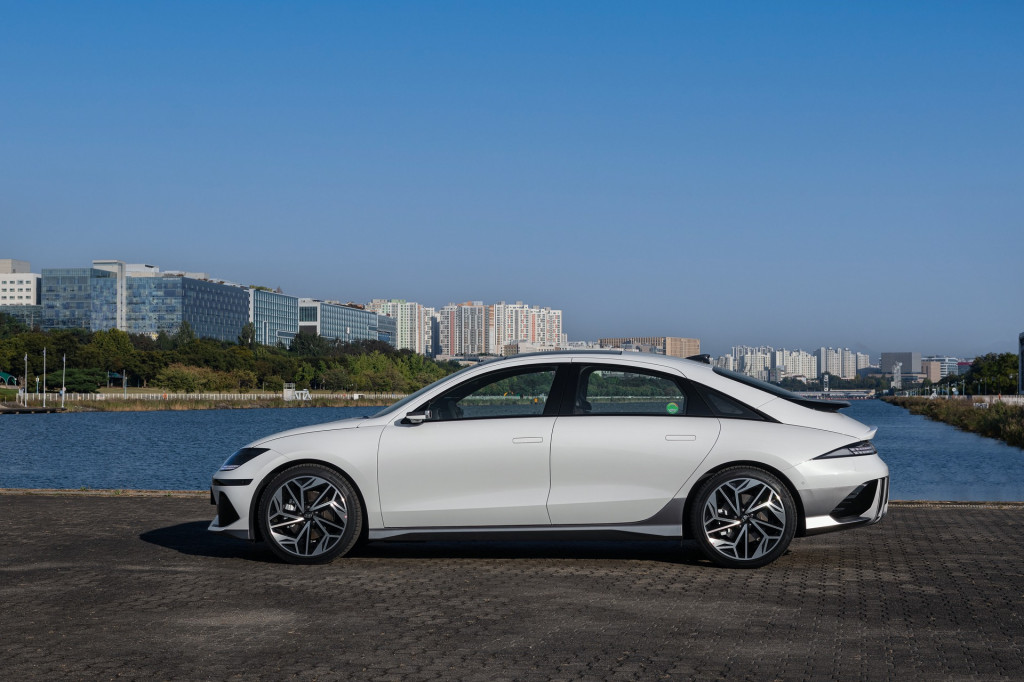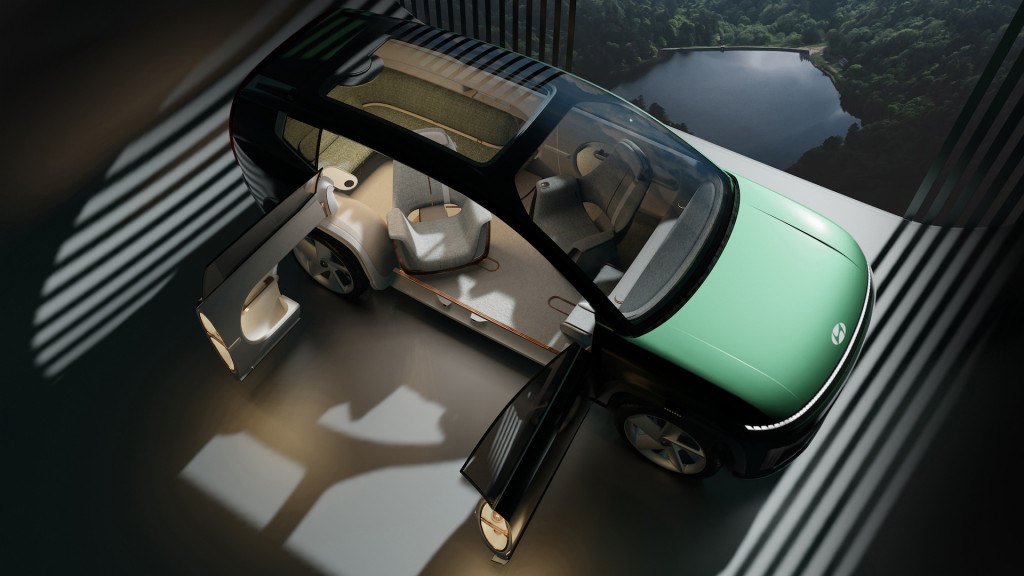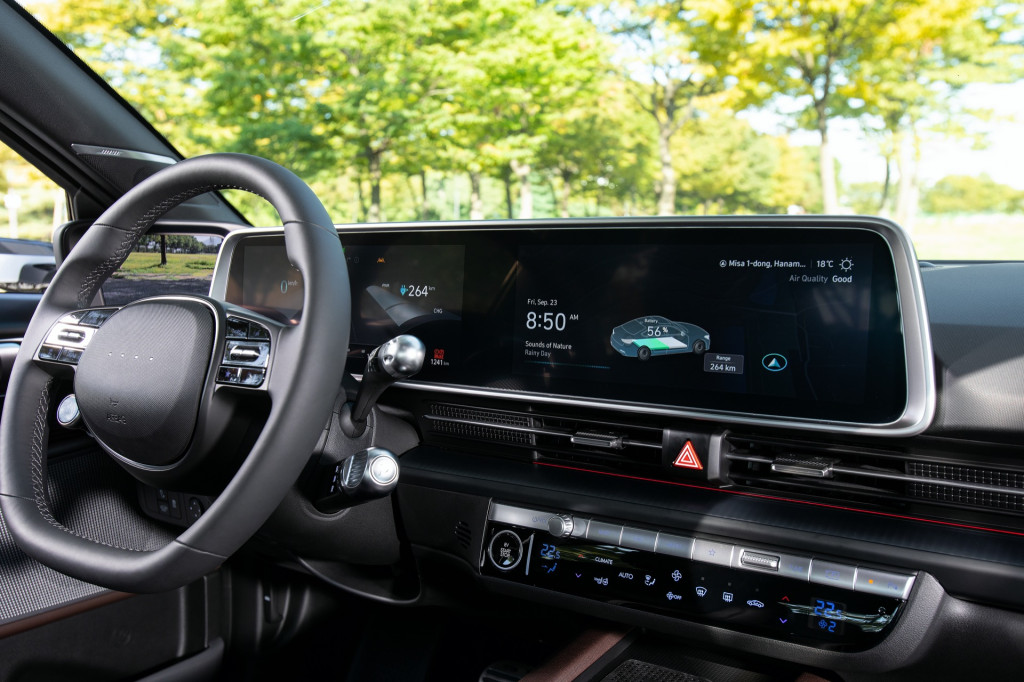The auto industry is playing catch-up to Tesla on over-the-air software updates and upgrades, and now Hyundai, Kia, and Genesis are making up for lost time.
On Tuesday in Korea, Hyundai announced its next-generation connected car operating system and next-generation EV skateboard, and talked advances in over-the-air (OTA) software updates.
Light on details and big on promises, the Korean automaker is aiming to produce fully connected cars that will allow owners to buy new features over the air after the initial purchase.

2023 Hyundai Ioniq 6
Ioniq 6 kicks off Hyundai's next-generation connected car
By 2025 Hyundai said all its EV and gas models, including those made by Kia and Genesis, will offer over-the-air update capabilities. But not every model will have the same level of integration when it comes to software updates.
Current models such as the electric Hyundai Ioniq 5 and Kia EV6 were too far along in their development to feature deep firmware integration upgrade capabilities, according to Hyundai spokesperson Miles Johnson.
The first model to feature firmware-level over-the-air (OTA) update capabilities will be the 2023 Hyundai Ioniq 6, which is based on the same E-GMP platform as the Ioniq 5 and EV6. But hardware and software differences due to development cycles will enable deeper integration of software upgradability.
Johnson told Motor Authority the firmware updates will extend to vehicle powertrain components, including but not limited to control units, electric motors, power steering systems, and electronic stability control systems. OTAs will even be able change acceleration and other driving characteristics.

Hyundai Seven concept
OTAs coming to next-generation EV platforms
Future Hyundais will ride on next-generation EV platforms that will feature an integrated software controller that the company will be able to access with OTAs.
Said to arrive in 2025, the new platforms will be known as EM and ES based on the group's Integrated Modular Architecture (IMA) announced in March. A key element of the IMA will be standardization of parts, including the battery pack, five types of motors, and chassis components.
The EM platform is being designed to underpin EVs across all segments, and Hyundai said it will provide a 50% range increase compared to today's EVs. The 2023 Hyundai Ioniq 5 has an EPA rating of 303 miles in its most efficient form. The platform will support Level 3 or higher autonomous driving technology as well.
The ES platform is under development exclusively for purpose-built vehicles with a flexible structure that is aimed at business-to-business demands. Hyundai said it will be capable of making tailor-made vehicles for delivery, logistics, and car-hailing companies.
The future? Features on demand
Hyundai is planning for connected cars to be a new source of revenue with Feature-on-Demand (FOD) services rolling out in 2023. The automaker said customers will be able to purchase functions and features for their vehicles over the air.
Plans call for customers to have the ability to remotely upgrade the performance and functionality of their vehicles anywhere at any time without a trip to the dealership. Updates will be constant.
The automaker didn't respond at the time of publishing as to what kinds of functions and features will be offered via FOD, or whether these will be one-time fees or subscription-based.

2023 Hyundai Ioniq 6
Next-generation operating system baked into new architecture
Hyundai's new operating system will be dubbed the Connected Car Operating System (CCOS). The automaker is developing it internally, though it's unclear what if any outside operating system will serve as the backbone.
The automaker is working with Nvidia and the using tech giant's Nvidia Drive semiconductor platform.
Like Volvo, Hyundai plans to integrate cameras, radar units, and lidar systems into its future vehicles and feed all the data into the CCOS. Hyundai hasn't said who will provide the lidar hardware. Volvo is sourcing its lidar units from Luminar.
Hyundai also hasn't said whether the CCOS will be compatible with or feature Apple CarPlay and Android Auto integration.
